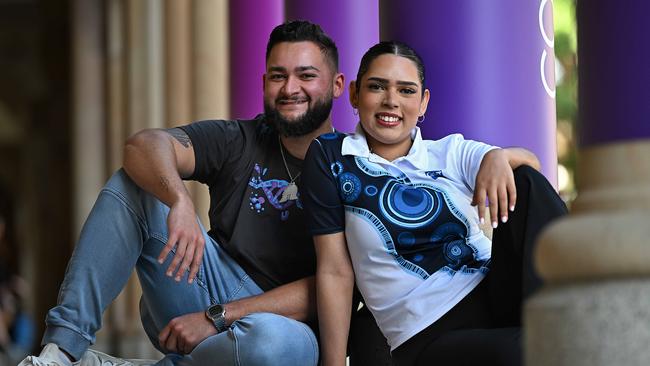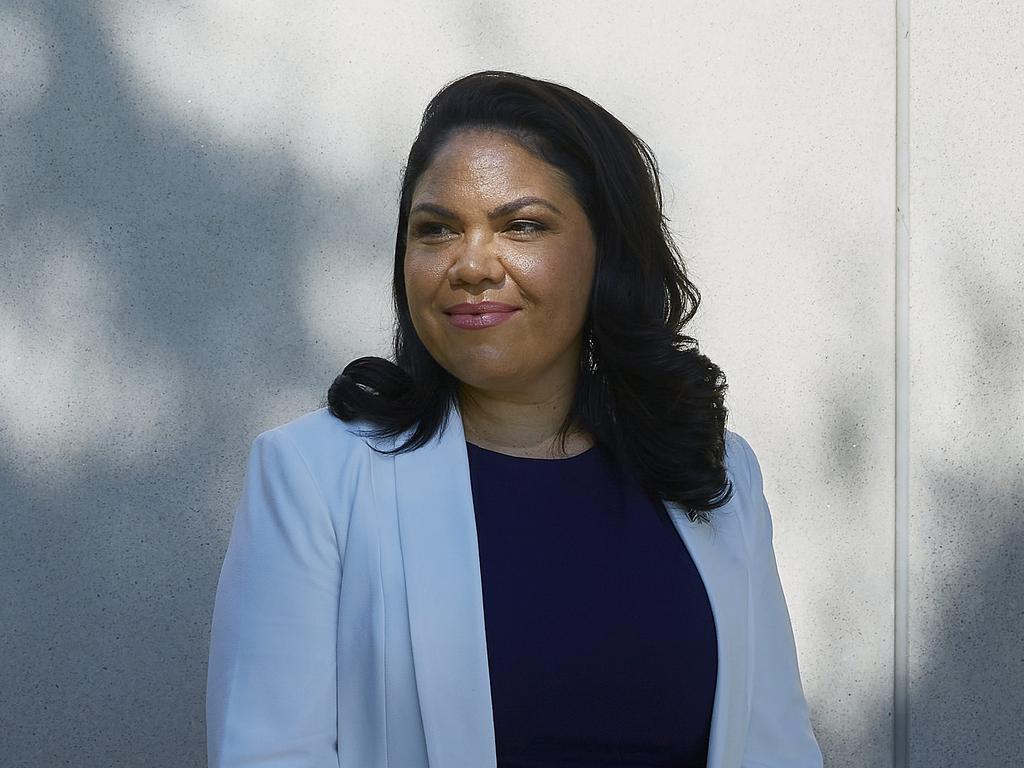Needs of the Nation survey: Majority believe we’re a racist country
Are Australians racist? A new survey reveals that most of us believe we are, despite growing support for an Indigenous treaty among the younger generation.

Young Australians are the keenest for an Indigenous treaty following the failure of the voice referendum last year, despite exclusive polling revealing three-quarters of Australians say the country is racist.
The nation remains divided over First Nations recognition, with 39 per cent of Australians wanting the federal government to consider a treaty with Aboriginal and Torres Strait Islanders, 38 per cent opposing a treaty and 23 per cent undecided.
Support wanes with age; young Australians are twice as likely as older Australians to back an Indigenous treaty.
In the wake of the voice referendum, an exclusive Needs of the Nation poll for The Australian, by The Growth Distillery, reveals 72 per cent of respondents describe Australians as racist.
The poll of 1042 people shows 17 per cent of people think the word “racist’’ describes Australia a lot, and 55 per cent a little.
Only 24 per cent of people feel “racist” is not a word that describes Australia at all – double the proportion in a similar survey of 1203 people by Newspoll for The Australian’s 50th anniversary in 2014, when 87 per cent of respondents felt that “racist’’ described Australians a lot or a little.
The 2024 polling shows that 57 per cent of 18 to 34-year-olds support a treaty, compared to 39 per cent of 35 to 49-year-olds and just 28 per cent of the over-50s.
Support is highest in remote areas, where 81 per cent of respondents back a treaty, compared to 41 per cent of city residents and 32 per cent of people in regional areas.
Wealthier households are most likely to support a treaty.
The fresh polling mirrors the results of last year’s referendum for constitutional recognition of Aboriginal and Torres Strait Islanders through an Indigenous voice to federal parliament, which was defeated after 60 per cent of Australians voted no.
But the younger generation’s support for a treaty is heartening for Torres Strait Islander student Lachlan Bon, 25, who is investigating the voice referendum for his honours thesis at the University of Queensland.
He plans to complete a PhD and then lecture at university or contribute to politics.
“I see education as bringing knowledge and power to our people,’’ Mr Bon said.
“But we also need to educate other Australians, not using emotional or fear-based appeals, but information that is accurate and appropriate so we can all move forward together.’’
Mr Bon blames the referendum’s defeat on scare campaigns and poor communication.
“I saw a lot of fear and emotional appeals, predominantly from the No side,’’ he said.
“There probably could have been clearer communication from the Yes camp. I feel a lot of people resonated with what the Yes camp was saying, but it was hard to convey one clear message.’’
Mr Bon, a Samsep-Meriam man with family ties to the Bowen region of north Queensland, studied a Bachelor of Arts after being awarded a boarding school scholarship through the Australian Indigenous Education Foundation. Fellow AIEF scholar Anjelika Wittkopp, 20, is studying a business degree at the Queensland University of Technology, with dreams of a career in human resources or real estate.
The Gangulu and Yiman woman, whose family hails from Rockhampton, worries that too many First Nations youngsters are “going backwards’’.
“We need to be getting kids off the street, and recognise that kids need stability in their lives,’’ she said. “The youth crime rate is sad, but you can’t really blame them when they haven’t been given the foundation others have been given. I’d like to direct more of the focus from the city kids and into rural areas, and get people to actually see what true Indigenous struggles are.’’
The Needs of the Nation polling reveals division over whether people think governments are doing enough to help close the gap between Indigenous and non-Indigenous Australians. It found 46 per cent of respondents believe enough is being done, 38 per cent feel not enough is being done, and 16 per cent are unsure.
Young Australians are more likely to state not enough is being done to close the gap: 46 per cent of 18 to 34-year-olds, compared to 30 per cent of over-50s.
The data shows Australians are divided over the need for more action to close the gap, despite the latest Productivity Commission data revealing alarming disparities in health, education and societal outcomes for Aboriginal and Torres Strait Islanders.
A First Nations boy born in 2022 is likely to die 8.8 years earlier than a non-Indigenous boy, with an 8.1-year life expectancy gap for girls. Only one in three Indigenous children are developmentally on track by the time they start school, compared to 56 per cent of their non-Indigenous classmates.
Barely two-thirds of Indigenous 20 to 24-year-olds hold a year 12 or equivalent qualification, compared to 91 per cent of non-Indigenous young Australians.






To join the conversation, please log in. Don't have an account? Register
Join the conversation, you are commenting as Logout